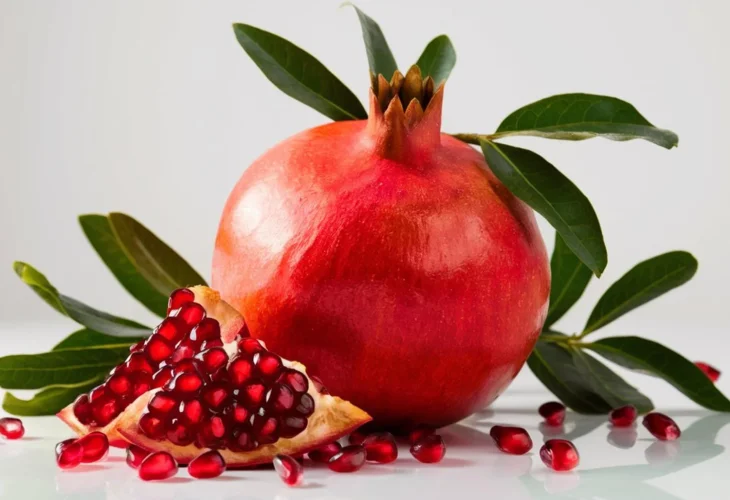The Health Benefits of Pomegranates Unveiled
Pomegranates boost brain health, aid calcium absorption, facilitate wound healing, and sterilize. But when should you avoid eating a pomegranate?
 (Photo: shutterstock)
(Photo: shutterstock)Pomegranates boast an impressive nutritional profile. They are low in sugar and rich in dietary fiber. They are an excellent source of antioxidants, containing vitamins, especially vitamin C, and minerals. All of these help protect the body from external stress and free radicals, while maintaining the proper functioning of the immune system.
The high levels of antioxidants in pomegranates assist in reducing disease risk. Additionally, there are unique compounds in pomegranates that are proven to have anti-inflammatory effects and are beneficial in lowering cholesterol levels and preventing the formation of arterial plaques. This helps the body defend against risk factors for diseases such as air pollution, chemicals, viruses, and pesticides.
Pomegranates also impact brain health. The antioxidants in them help protect against degenerative diseases, slow down the aging process, and improve memory.
Pomegranate contains vitamin K—an important vitamin in the calcium absorption process in the body. Thus, pomegranates may help prevent osteoporosis. Freshly squeezed, unpasteurized pomegranate juice contains more antioxidants than the seeds themselves because beneficial substances are released from the peel during juicing.
Pomegranate peel aids in wound healing and acts as a disinfectant, making it beneficial for gum inflammation. Place pomegranate peels in a pot with two cups of water, simmer with the lid on for 20 minutes, and strain the liquid. You can rinse your gums, and even drink a small amount of the infusion daily in cases of intestinal parasites and worms. You can also add the infusion to smoothies.
Try drying pomegranate peels. It's advisable to thread pieces onto a skewer in a ventilated area, grind them, and use them year-round.
When is a pomegranate not recommended? Pomegranate juice can stain, including your teeth, so it's best to drink with a straw or rinse your mouth with water immediately after consumption. For those with a sensitive digestive system, it's recommended to start with small amounts and gradually increase. Excessive consumption of pomegranate juice can raise blood sugar levels. It's preferable to eat the fruit with its fibers to moderate the sugar rise.
Interactions with Medications—pomegranates contain substances that can interfere with the absorption of certain medications, such as cholesterol-lowering drugs, "statins," or certain blood thinners.
Pomegranates have a long shelf life. Make the most of them. They are one of the treasures that should be wisely exploited and used.

